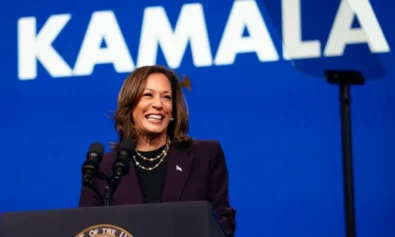The mention of Mali by Republican presidential challenger Mitt Romney twice during last night’s debate was a rare moment in American presidential politics.
But this historically important African nation, the site of grand empires and at one point the source of all the world’s gold and salt, has now become vital to American interests for unfortunate reasons—because of the recent rise in northern Mali of radical groups with links to Al Qaeda.
Romney used Mali as an illustration of the rise of Al Qaeda, trying to make the point that the world has gotten less safe during the administration of President Obama because terrorist groups have been allowed to flourish in places like Mali. Obama countered that Al Qaeda has been decimated during his administration.
But the conditions in the West African nation have gotten so chaotic and dangerous that the UN Security Council said it would send a military force into the country to intervene and retake control of the northern region from Islamist extremists.
Since Mali’s president Amadou Toumani Toure was ousted in March, the north and east of the country have been under the control of Tuareg rebels and militias linked to Al Qaeda.
“There is a feeling that it is a dire situation in northern Mali and we need prompt action,” said Guatemala’s envoy to the United Nations, Gert Rosenthal, who holds the rotating presidency of the Security Council this month.
“But it is a very complex operation… this will be the first step towards something more robust, I hope.”
When the UN Assistant Secretary-General for Human Rights Ivan Simonovic returned from Mali two weeks ago, he reported to the world community that Islamist militias had imposed a harsh version of Sharia law on the areas they controlled, drastically affecting the lives of women in particular. Mali residents in the north told him of forced marriages, forced prostitution, widespread rape, and women being sold as “wives” for less than $1,000.
Rebels also stoned to death an unwed couple and amputated the hand of an alleged thief. They have also destroyed half of the World Heritage-listed tombs and mausoleums in the town of Timbuktu, claiming they violated Sharia law and promoted idolatry among Muslims. In the view of the UN, the destruction of the shrines could be considered war crimes; the International Criminal Court has launched a preliminary inquiry into the alleged atrocities.
While Romney mentioned Mali during the debate, neither candidate made the link between Mali’s crisis and the civil war last year in Libya. Guns have been sent into Mali from Libya to help the Tuareg rebel groups, some of whom had fought for Libyan leader Moammar Gaddafi.
The candidates also made no mention of Mali’s rich history. In fact, Mansa Musa I, who ruled the Mali Empire in 1280 and was estimated to have been worth the equivalent of $400 billion in today’s cash money, was recently chosen by Celebritynetworth.com as the richest man in history. Emperor Musa controlled what is now the West African regions of Timbuktu, Ghana and Mali.
During Musa’s time, that area was the leader in providing the world’s salt and gold.
When Musa, a devout Muslim, made his pilgrimage to Mecca, he rolled out with 60,000 men and 12,000 slaves who all carried 4-lb. gold bars. Along the way, the emperor took care of all meals and incidentals including some 80 camels who bore between 50 and 300 pounds of gold dust each. And along the way, he handed out gold to any poor people he encountered.


